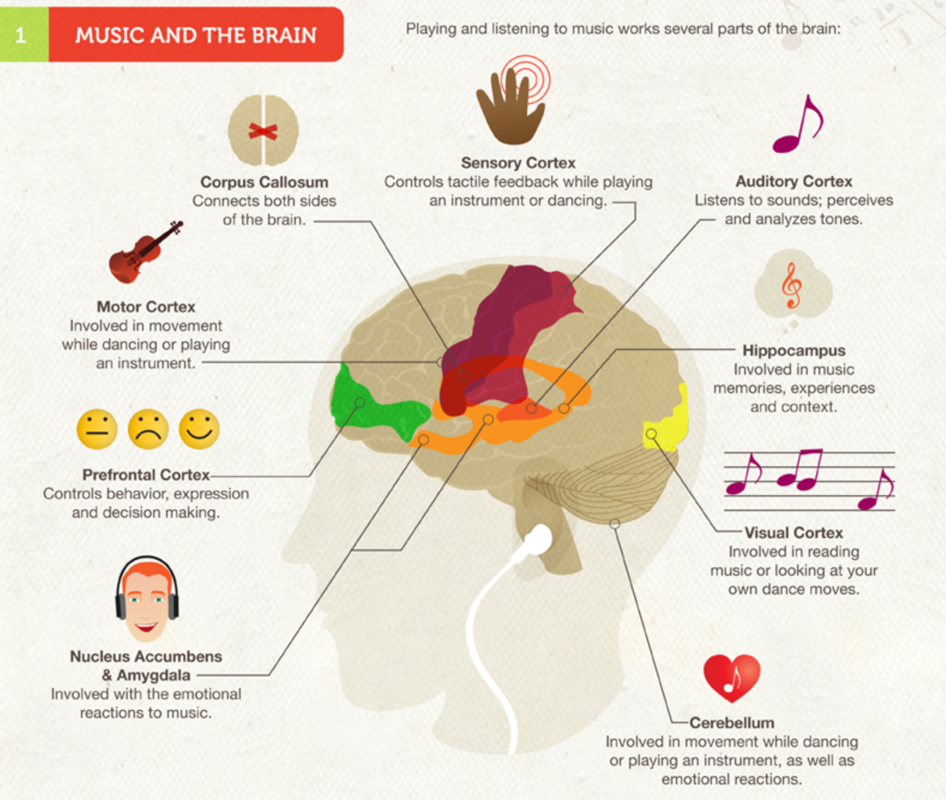
Have you ever heard of the "Mozart-Effect"?
It's a phenomenon that suggests that kids will grow up to be more intelligent if they've been listening to classical music in the womb.
But not only in that case - classical music in general was thought to improve the performance and spatial ability.
The effect had first been researched in 1993 by a University in Irvine.
This study sparked many other experiments and studies - with different results.
In 2013, psychologists of the Harvard University concluded that the music had only little influence on the intelligence.
The test results varied only a little bit and were not significant enough to be counted as crucial.
Since then, the Mozart Effect seemed to be debunked.

But in 2015, a study from scientists in Finland might have revived the Mozart Effect.
Researchers from the University of Helsinki conducted a study where the subjects listened to one of Mozart's compositions for 20 minutes.
And the results?
It seemed that listening to the music stimulated certain genes that are in charge of releasing and transporting Dopamine (our "Happy Hormone").
The researchers also found out that those genes were influencing the subject's learning- and memory abilities, as well as the synaptic neurotransmission.
So this shows that music does have an impact on our cognitive abilities.

The study also revealed that listening to classical music lowered the expression of genes which are linked to neurodegenerative diseases (like Parkinson's).
But this happened mostly with subjects that were already trained in music or had some experience with it.
In an Interview, the leading scientist of the Group (Irma Järvelä) stated her opinion about this phenomenon: She said that they mostly found effects in subjects that were either used to classical music or enjoyed it. Others, who disliked classical music or were very unfamiliar with it, didn't have results that were as significant.
The study has also shown that there is an evolutional link between the sound perception of humans and songbirds:
Both inherit the gene α-Synuclein (SNCA).
It gives songbirds the ability to memorize and play back melodies - and the same goes for humans too.

But why did the finnish scientists even start a study about the Mozart Effect, when most people already thought it was a myth?
Järvelä answers this question by saying that the group was looking at the factors that would influence human diseases.
"In genetics, we have genes and then we have environmental effects. Our genes do not always tolerate our environment - when you think of carcinogenics, for example - and this kind of crosstalk between genes and the environment is also present in music. I was interested in this interaction between the environment and studying music, or listening to music." - Irma Järvelä
But researchers have also suggested that these study results might not depend on classical music - maybe it might just be music in general!
Järvelä also agreed that they should repeat the study with different musical genres as well, for example Jazz, because it leaves a lot of room for creative imagination.
Also, since we already learned that the effects are stronger if the subjects likes the style of music, this might show different results for different demographic or ethnical groups.

Whether or not the "Mozart Effect" truly exists - Music is beneficial to our body anyway!
It can calm us down, give us a better ability to focus, take our mind off of things or remember something.
Music can always change your mood (for the better or for the worse) and can either relax or stimulate our body and mind.

© Sirwinchester
